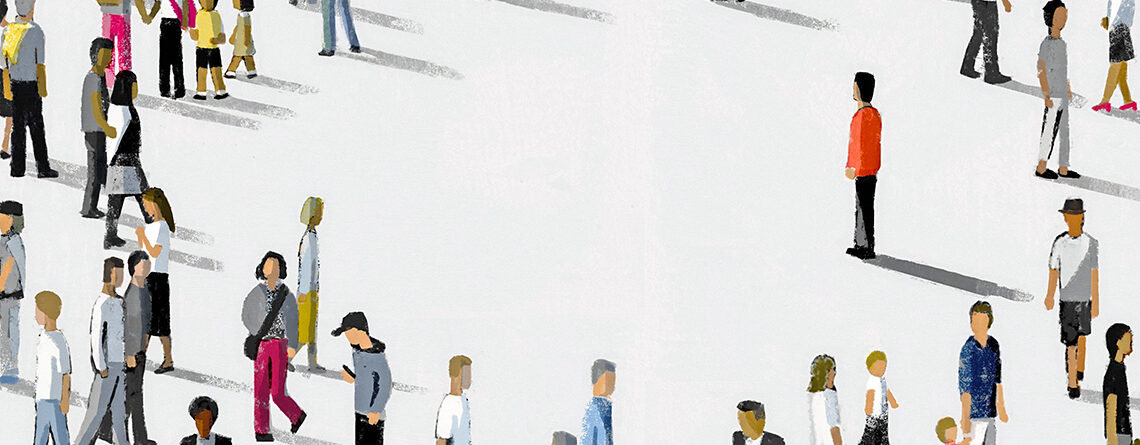Being Alone Versus Feeling Lonely:
The Nystrom & Associates provider consulted for this article on being lonely and being alone is Sharon Melin, MA, Outpatient Therapist.
“Our language has wisely sensed these two sides of man's being alone. It has created the word “loneliness” to express the pain of being alone. And it has created the word “solitude” to express the glory of being alone," theologian, Paul Tillich, wrote in The Eternal Now.
Why is it that some people can be perfectly happy with being alone, while others may feel lonely even when they aren't "alone"?
What’s the Difference Between Being Lonely and Being Alone?
It’s important to recognize that “being alone” and “feeling lonely” are not the same thing.
- Being Alone: This refers to the physical state of being by yourself. You are physically alone in the sense there is no one else with or around you.
- Feeling Lonely: Loneliness, on the other hand, is an emotional state where you feel disconnected or isolated from others, even when surrounded by friends or family.
Understanding this distinction is key to improving our emotional well-being. As Sharon Melin, MA, Outpatient Therapist at Nystrom & Associates, explains, “Being alone is a state of being, while loneliness is a feeling. We can be perfectly content by ourselves, but loneliness arises when we feel unseen, misunderstood, or disconnected.”
Your Relationship Within
A healthy relationship with yourself is essential to enjoying time alone. Research indicates that individuals who practice self-compassion experience less loneliness and higher life satisfaction. If you avoid alone time at all costs, it may be a sign to reassess how you view yourself.
It’s natural to feel lonely at times, but frequent feelings of isolation may signal a need for self-care or support. A balanced relationship within allows you to enjoy solitude and connection. When in tune with yourself, you can sense when you need reflective solitude and when you're craving social interaction.
What to Avoid
When loneliness strikes, it’s easy to turn to unhealthy coping mechanisms. However, these behaviors can make you feel more lonely and alone over time:
- Excessive Alcohol Consumption: Drinking to escape loneliness may temporarily numb your feelings, but it can worsen emotional isolation.
- Screen Time Overload: Spending hours on TV or social media as a substitute for real-life connections can leave you feeling more disconnected.
- Substance Abuse: Turning to drugs or non-prescribed medication as a way to escape loneliness can be harmful to both mental and physical health.
Related: 5 Quick Ways to Improve Your Mood
Practices to Foster a Healthier Relationship with Yourself
Building self-compassion and improving your relationship with yourself takes time and practice. Here are some effective habits to get started:
Recognize Your Inner Critic: When negative self-talk arises, acknowledge it and consciously replace it with a positive affirmation. Research shows that challenging negative self-talk can improve emotional resilience.
Prioritize: Self-care isn't just about physical health ,but also mental and emotional needs. Big or small, fulfilling promises to yourself builds self-trust and confidence.
Accept Your Current Reality: Make peace with where you are in life. Understanding your past and present situation helps you gain clarity on what steps to take toward growth
- Foster Deep Connections: Although it is important to feel content within yourself, it is also important to find connections outside of yourself. Feelings of loneliness can amplify if you aren't creating meaningful connections with people you love.
Related: How Gratitude Can Change Your Life
A Word From Nystrom & Associates
It is important to make the distinction between being alone and feeling lonely, but developing and strengthening the relationship with yourself takes time. The process of creating a portal of acceptance and love within is a journey and ironically, doesn’t have to be done on your own. Having a qualified professional to guide you along the way opens an opportunity for you to build a relationship with yourself that supports the life you want to create. Check out our providers to find a therapist that’s right for you.
Nervous about starting therapy? Take a look at our Counseling & Psychotherapy Services, which outlines what you can expect from the program.







